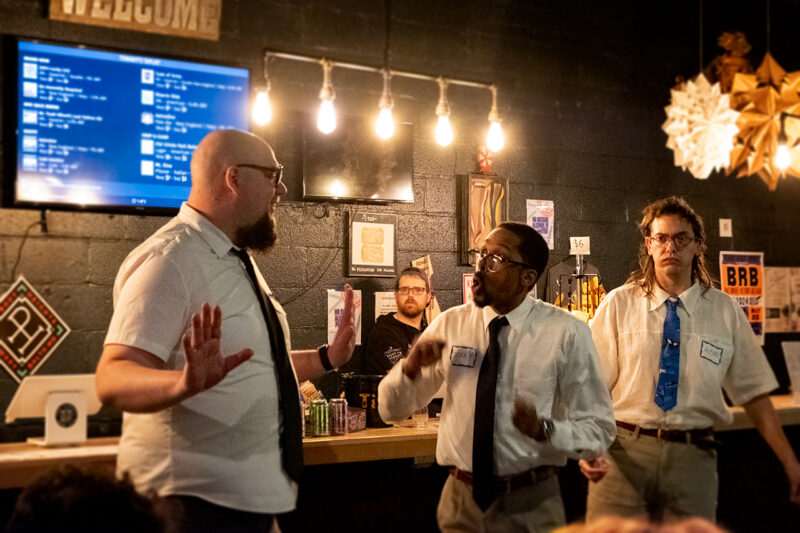It was the kind of blustery rainy night that could only be mitigated by martinis and opera. Throwing in a gilded age Mount Vernon mansion with a massive Tiffany skylight as the setting for the performance certainly upped the ante, at least that’s what my date and I were telling ourselves as we shivered up Monument Street.
Cold dark rain pelted us on a diagonal, so that our one intact umbrella could shield either our heads or our feet but not both. We arrived at the Revival Hotel with wet pants legs, but some olives soaked in Ketel One provided solace. By the time we were ready to scuttle down the block to the opera, our legs were dry and our resolve was fortified, ready to accomplish our main mission: an intimately scaled version of Faust performed by Opera Baltimore at the Engineers Club.
I had enlisted the company of one of my best friends, promised him cocktails and arias, as well as a choice venue: a decadent Gatsby-esque palazzo–in Baltimore’s Mount Vernon Place.
We both admitted to wanting to back out of our plans last minute because the weather was so nasty, but instead linked arms and shared his umbrella. Mount Vernon was achingly beautiful, even in the dark and cold. There really is no place like this little pocket of old school Baltimore opulence, full of grand 19th century architecture, tiny slivers of light blinking out through thick slabs of hundred year old plate glass windows, with giant crystal chandeliers and cake icing moldings, stained glass and wrought iron lattice, the historic social clubs and ballrooms and hotels all lining the park, sentinels of a bygone era.
Both of us love opera, but neither of us are aficionados. His previous life in NY theater and a love of musical performance matched my curiosity about the archetypal Western European / German paradigm that is Goethe’s Faust. When I learned that Opera Baltimore was performing it for one weekend only, I knew that we had to go.






























